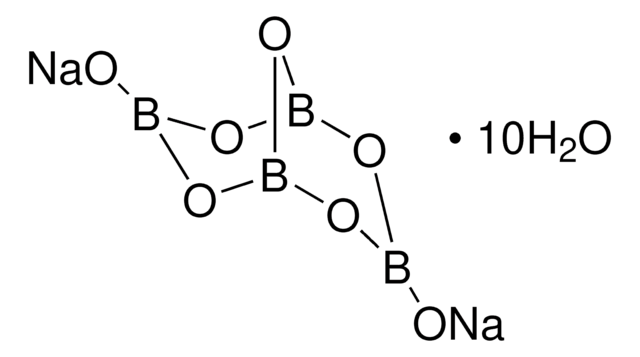D8388
Dimethyl pimelimidate dihydrochloride
powder
Synonyme(s) :
DMP, Dimethyl pimelinediimidate dihydrochloride
About This Item
Produits recommandés
Forme
powder
Niveau de qualité
Pertinence de la réaction
reagent type: cross-linking reagent
Solubilité
H2O: 10 mg/mL
Température de stockage
−20°C
Chaîne SMILES
Cl.Cl.COC(=N)CCCCCC(=N)OC
InChI
1S/C9H18N2O2.2ClH/c1-12-8(10)6-4-3-5-7-9(11)13-2;;/h10-11H,3-7H2,1-2H3;2*1H
Clé InChI
LRHXBHUTQWIZTN-UHFFFAOYSA-N
Vous recherchez des produits similaires ? Visite Guide de comparaison des produits
Description générale
Application
Attention
Autres remarques
Mention d'avertissement
Warning
Mentions de danger
Conseils de prudence
Classification des risques
Skin Irrit. 2
Code de la classe de stockage
11 - Combustible Solids
Classe de danger pour l'eau (WGK)
WGK 3
Point d'éclair (°F)
Not applicable
Point d'éclair (°C)
Not applicable
Équipement de protection individuelle
dust mask type N95 (US), Eyeshields, Gloves
Faites votre choix parmi les versions les plus récentes :
Déjà en possession de ce produit ?
Retrouvez la documentation relative aux produits que vous avez récemment achetés dans la Bibliothèque de documents.
Les clients ont également consulté
Notre équipe de scientifiques dispose d'une expérience dans tous les secteurs de la recherche, notamment en sciences de la vie, science des matériaux, synthèse chimique, chromatographie, analyse et dans de nombreux autres domaines..
Contacter notre Service technique








